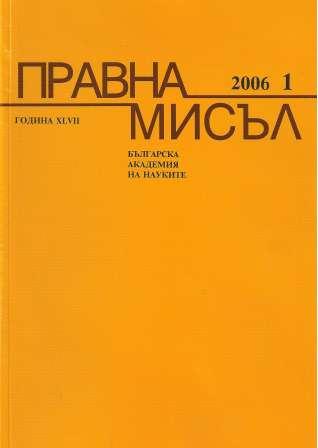Спиране изпълнението на решения на възложителя като обезпечителна мярка по член 120, алинея 4 от Закона за обществените поръчки
Suspension of the Principal's Decision According to Article 120 in the Law on Public Procurement
Author(s): Svilen StanchevSubject(s): Law, Constitution, Jurisprudence
Published by: Институт за държавата и правото - Българска академия на науките
Summary/Abstract: The new Law on Public Procurement is a civil procedure for the contestation of a principal's acts. The new Law protects the rights of those people who participate in the public procurement procedure. The new Law does not suspend the principal's acts while awaiting the court's decision. There is a difference between the former procedure and the new one. According to the repealed Law on Public Procurement, the principal's contracts with the prospective contractor were halted when a complaint was lodged against the principal. Under the new Law, civil action against the principal does not suspended the procedure of procurement. The prospective contractor must produce a claim to stop the procedure and give proof of his claim. Suspending the principal's act is solely a judicial order enacted by the Court. The Court may suspend only the principal's decisions, which may also be contested by the prospective contractor, according to Article 120 of the Law on Public Procurement. Only this principal's act, which can be contested through action, may be stopped. Only the prospective contractor, who has brought action against the principal, may claim suspensive order. The claim for suspension must be filed in the Court who heard the general case against the principal. The Court will hear the claim according to the rules in the Code of Civil Procedure. The Court may suspend the principal's act only when it is difficult to release the prospective contractor's rights and if the claimant provides proof against the principal or pays bail. The suspensive order raises the following results: - If the court has stopped a beginning act of the principal, the procedure may not be continued. All acts after the order to stop the procedure and before the Court's final decision are illegal. - If the object of the suspensive order is the principal's finishing act, then the principal may not conclude a public procurement contract with the prospective contractor to whom it is awarded. - The abrogation of the suspensive order is when the Court makes a final decision on the case.
Journal: Правна мисъл
- Issue Year: XLVII/2006
- Issue No: 1
- Page Range: 3-12
- Page Count: 10
- Language: Bulgarian
- Content File-PDF

